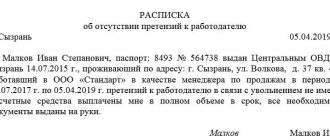Foreclosing on mortgaged property is not a simple process and requires understanding. The Civil Code prescribes the basic rights of the pledgee and establishes the procedure for foreclosure on property that has been pledged. Most often, collateral arises when large loans (credits) are taken out for the purchase of movable or immovable property. But it happens that the loan becomes impossible to repay on time.
ATTENTION: if you have a debt to the bank, our lawyer will help you defend your right in court.
Extrajudicial foreclosure of pledged property
The procedure for registering a pledge involves concluding a written contract, which is simultaneously signed by the parties. To obtain property that was previously mortgaged, legal proceedings will be required if the parties cannot resolve the problem on their own.
In court, when building a defense position, it is necessary to pay attention not only to the correct assessment of the property, but also to the reduction in the amount of penalties, which are usually declared as a claim by the mortgagee.
Also, legal practice provides for the foreclosure of property that was taken as collateral. If the parties, when drawing up and signing the contract, established an internal judicial procedure, then the additional costs will have to be paid by the pledgee in full. But he can prove that the foreclosure process was started because of the mortgagor (read the case from our law practice: foreclosure on mortgaged property, judicial practice at the link).
Foreclosing on mortgaged property through the court
Only the court can resolve the problems of the pledge holder in accordance with the drawn up agreement and the law. Foreclosure through an authority is possible in certain situations.
Some of the conditions for the most frequent requests should be precisely listed:
- subject of collateral - property that is the purpose of obtaining a loan (mortgage, car loan), for which a debt has arisen and the need for a court case with the bank;
- property is the subject of different pledges, executed at different times with different participants in civil transactions, in the event of controversial situations and failure to fulfill its obligations on the part of the pledgor in the proper amount.
Theoretically, there are other cases when it is impossible to foreclose on property through intra-court proceedings. Often the conditions for the treatment procedure are specified directly in a specific agreement. It is recommended to always conclude an agreement in a form similar to the agreement formed previously.
If the process is carried out without judicial intervention (through a notary, for example), then according to the law, notification of the appeal is sent to both parties almost simultaneously by mail. The document generated by the warring parties must contain information about other methods of selling the property under mortgage and its price, which was initially set.
The sale of property can take place only after a third of a month from the date of receipt of the notification by both interested parties. Another period may be specified in the contract even earlier. Then this specific period will be taken into account.
Methods of foreclosure
At the moment, there are two ways to foreclose on mortgaged property:
- Judicial order.
It is used most often, as it does not require notarization and is simple during initial registration.
- Extrajudicial procedure.
This is not always used; most often, the voluntary participation of the parties and the creditor’s access to the collateral are required.
In practice, the judicial procedure is more often used, however, everything depends on the will of the parties and the available documentation.
Judicial order
The creditor has the right at any time (subject to the conditions of duration or frequency of the violation, as well as proportionality) to file an application with the court to foreclose on the collateral. It does not matter whether there is an out-of-court agreement or not.
The procedure is carried out in the following order:
- Pre-trial procedure is observed if it is mandatory.
The creditor must send a claim to the debtor with an offer to repay the debt voluntarily.
- A debt collection application is being prepared.
And also about foreclosure. Two options are allowed - simultaneous use of two procedures or alternately. In the second case, a decision is first made to collect the debt, and then, in a separate application, foreclosure is applied to the collateral.
- Documents are submitted to the court in order to obtain a court decision and a writ of execution.
- The writ of execution is submitted to the bailiff service at the debtor’s place of residence.
An application for seizure may be filed along with the claim. It needs to justify why such a measure is necessary, and how its non-use may lead to negative consequences.
Such an application is considered without calling the parties, within 24 hours, the sheet is also issued on the next business day, since delaying the process may lead to the illegal sale of the object.
The bailiff, after receiving the notice of foreclosure, initiates proceedings, of which the debtor is notified. The pledgor is asked to hand over the collateral himself; if this is not done, a search for him is announced.
The property will be sold at auction. If it does not sell after three attempts, even if the price is reduced, the creditor will be asked to receive it to pay off the debt. If he refuses, he will not be able to recover at the expense of this object.
Extrajudicial procedure
An extrajudicial procedure can be applied only if the parties have entered into an agreement on this, which can be drawn up in a separate document or be part of the original agreement (clause 1 of Article 339 of the Civil Code of the Russian Federation). Such an agreement must contain all the conditions under which the property will be sold, including the method.
The procedure is performed in the following order:
- all necessary actions are taken to ensure the debtor fulfills his obligations;
- the debtor is sent a notice of foreclosure.
Further, everything will depend on the will of the debtor and the circumstances of the case. If the object is kept by the creditor, then he can begin the procedure at any time, but if it is in the use of the debtor, then sale will be possible only if he transfers it to the creditor.
Sale will be permissible ten days after the pledgee receives notification of the commencement of the procedure. The period may be increased in the contract (clause 8 of Article 349 of the Civil Code of the Russian Federation).
The collateral is transferred to the bank according to the transfer and acceptance certificate. The execution of this document is mandatory.
It is better if the agreement is certified through a notary. In this case, it will be possible to initiate enforcement proceedings on the basis of the notary’s execution signature. Going to court will not be necessary.
The property is sold at auction. If the amount remaining after the sale is not enough to fully cover the obligation, the claimant has the right to file a claim in court. If there are funds left after the sale, the claimant must transfer them to the debtor.
Download for viewing and printing: Article 349 of the Civil Code of the Russian Federation
Claim for foreclosure on mortgaged property
Often, to ensure the fulfillment of an obligation, the debtor and the creditor enter into an additional pledge agreement, according to which the debtor pledges certain property to the claimant, in the case of real estate or a car, such pledged property is subject to registration.
Subsequently, if the debtor cannot fulfill the obligation assumed, the claimant has every right to sell the pledged property, for which purpose a corresponding statement of claim is filed. This document indicates the court to which the application is sent, depending on the jurisdiction, information about the debtor and the claimant.
It should be noted that in order to consider this claim, the lender will have to pay a state fee, the amount of which depends on the value of the pledged property.
This statement of claim must contain information about when and for what property the pledge agreement was concluded, what obligation is secured by the pledge. It should also be indicated that the debtor did not fulfill the main obligation within the period established by the contract and to what extent.
Based on the court decision, the claimant will sell the debtor’s property and close the unfulfilled obligation.
Accounting for the pledgor
The pledged property of the pledgor remains his property and continues to be accounted for on his balance sheet as one of his assets. At the same time, in the analytical accounting organized for the synthetic account on which the corresponding type of property is listed, the information that this property is pledged should be reflected.
The cash equivalent of the value of the pledged property is reflected in off-balance sheet account 009 “Securities for obligations and payments issued,” which must be confirmed by the agreement.
If the pledged item is transferred to the pledgee, then the change in the location of the pledged property is reflected in the inventory cards of this property and (or) in the analytical accounting organized for the synthetic account on which the corresponding type of property is listed. Entries in inventory cards and (or) in analytical accounting are made on the basis of an act of acceptance and transfer of the subject of pledge (movable property).
The sale of the subject of pledge is reflected in the accounting records of the pledgor in the manner established for accounting for the sale of the corresponding type of property.
If the subject of the pledge is goods or finished products of the organization, then on the date of transfer of ownership of them to the person who won the auction or the pledge holder, the organization includes the proceeds from the sale of the specified property in income from ordinary activities.
In accounting, recognized income is reflected by an entry in the credit of account 90 “Sales”, subaccount 1 “Revenue”. Accordingly, the book value of the sold collateral is written off to the debit of account 90 (subaccount 2 “Cost of sales”) simultaneously with the recognition of income. Expenses associated with the sale of the collateral are recorded in account 44 “Sale expenses” with subsequent debit to account 90, subaccount 2, if the collateral is goods or finished products.
If the collateral is property other than goods and finished products, then the income from its sale is other (clause 7, 10.1 of PBU 9/99).
In accounting, recognized income is reflected in the credit of account 91 “Other income and expenses”, subaccount 1 “Other income”. Accordingly, the carrying value of the sold collateral is written off to the debit of account 91 (subaccount 2 “Other expenses”) simultaneously with the recognition of income. Expenses associated with the sale of the pledged item are debited to account 91, subaccount 2 (clause 11, paragraph two of clause 19 of PBU 10/99).
The amount of VAT withheld by the auction organizer is reflected in the debit of account 91 (subaccount 91-2) and the credit of account 76.
The cost of the services of the auction organizer (less VAT) is included in other expenses and is reflected as an entry in the debit of account 91 (subaccount 2) and the credit of account 76 (clauses 11, 16 of PBU 10/99).
The value of the property specified in the pledge agreement and previously reflected in off-balance sheet account 009 “Securities for obligations and payments issued” is written off from off-balance sheet account 009 upon termination of the pledge.
Information on any security for obligations and payments issued by the company is presented in table. 8 “Securing Obligations” of the explanations to the balance sheet and the Statement of Financial Results. The amount of security received is reflected in line 5810 “Issued - total”; below is their breakdown.
Information about the property pledged is disclosed as part of the notes to the balance sheet and statement of financial results, in particular, for :
- fixed assets pledged - in table. 2.4 “Other use of fixed assets”;
- financial investments pledged - in table. 3.2 “Other use of financial investments”;
- reserves pledged under the contract - in table. 4.2 “Inventories as collateral”.
In relation to the pledged property, the following is disclosed: the fact of transfer of property; type of property transferred; established restrictions on the use of transferred property; the possibility of using the transferred property by the enterprise to conduct ordinary activities. The information about the property pledged also includes its value reflected in the balance sheet. If it is not possible to make a reliable assessment of the property pledged as of the reporting date, information about this is disclosed separately, indicating the conditions for determining the collateral amount.
An example of such a situation is the transfer of property as collateral, the composition and valuation of which can be determined only at the moment of failure to fulfill the terms of the collateral and the pledge holder has the right to make collateral claims (for example, the amount of the collateral is determined as a percentage of the amount of future revenue of the unitary enterprise).
Time limit for foreclosure on mortgaged property
If the debtor delays in fulfilling the obligation, the creditor reasonably asks when it is possible to fulfill the obligation through the sale of the collateral. In this case, this period should be provided directly in the pledge agreement.
If the term is not established by this agreement, then civil law in this case provides for a reasonable period for fulfilling the obligation, which is established within 7 days from the date of presentation of the creditor’s demand for fulfillment of the main obligation.
Termination of foreclosure on mortgaged property
Until the sale of the pledged property, the debtor has the right to stop foreclosure on the pledged property. This procedure is initiated by liquidating the resulting debt to the creditor.
However, if the debtor decides to pay off the debt, he should also know that in addition to the principal debt and other penalties (penalties, interest, penalties, etc.), he will be obliged to compensate the creditor for losses associated with the process of selling the pledged property.
How to foreclose on the debtor’s real estate within the framework of enforcement proceedings
Lawyer Antonov A.P.
The general procedure for foreclosure on real estate is established by the Law on Enforcement Proceedings. Special rules for mortgaged real estate are provided for in the Mortgage Law. To foreclose, a bailiff, with the help of an appraiser, evaluates the property and seizes it. The arrest is registered in the Unified State Register. The property is then sold at public auction. Sometimes the bailiff needs a court decision to foreclose. For example, this is necessary for land plots. In some cases, it may be necessary to register ownership of real estate with the debtor or claimant. It is carried out on the initiative of the bailiff.
1. When foreclosure can be applied to real estate A bailiff can foreclose on real estate if the debtor does not have or does not have enough money to fulfill the requirements of the enforcement document (Part 4 of Article 69 of the Law on Enforcement Proceedings). In this case, the bailiff must take into account the order of foreclosure. So, if the debtor is an individual entrepreneur whose claims are related to his business activities, or a legal entity, the bailiff can foreclose on the property only in the third or fourth priority. That is, after foreclosure on movable property and property rights that are not directly used in the production of goods, performance of work or provision of services (Parts 1, 2 of Article 94 of the Law on Enforcement Proceedings). Please note that sometimes the bailiff’s initiative is not enough to foreclose, but a court decision is necessary.
1.1. In what cases is a court decision necessary to foreclose on real estate ? It is necessary, in particular, to foreclose on a land plot (Article 278 of the Civil Code of the Russian Federation). A bailiff or a claimant can apply to the court for such a decision (clause 58 of the Resolution of the Plenum of the Supreme Court of the Russian Federation of November 17, 2015 N 50). Also, as a general rule, a judicial act is needed to foreclose on the mortgaged property at the request of the mortgagee (Article 51 of the Mortgage Law). In this case, a situation may arise when the writ of execution contains only a requirement to foreclose on the pledged property and there is no requirement to collect the debt under the main obligation. In this case, the bailiff does not have the right to foreclose on the debtor’s property other than the pledged one (clause 67 of the Resolution of the Plenum of the Supreme Court of the Russian Federation dated November 17, 2015 N 50).
2. When foreclosure cannot be applied to real estate The bailiff cannot foreclose on real estate if (part 4 of article 69 of the Law on Enforcement Proceedings, paragraph 2 of article 129 of the Civil Code of the Russian Federation): 1) it is withdrawn from civil circulation. For example, subsoil plots are state property and cannot be alienated (Article 1.2 of the Subsoil Law); 2) federal law prohibits foreclosure on it. For example, it is impossible to foreclose on: the only residential premises suitable for permanent residence of a debtor citizen and members of his family who live with him (Part 1 of Article 446 of the Code of Civil Procedure of the Russian Federation). However, please note that if the debtor’s only home is an unauthorized construction, it can be demolished, since demolition is not foreclosure within the meaning of Art. 446 of the Code of Civil Procedure of the Russian Federation (see Position of the Armed Forces of the Russian Federation). Please note that until appropriate changes are made to the legislation, immunity in relation to residential premises established by the provisions of Part 1 of Art. 446 of the Code of Civil Procedure of the Russian Federation, also applies to cases where real estate is considered luxurious and clearly exceeds the level of sufficiency to satisfy the reasonable needs of a debtor citizen and members of his family for housing (Resolution of the Constitutional Court of the Russian Federation dated May 14, 2012 N 11-P, Determination of the Supreme Court of the Russian Federation dated 10/29/2020 N 309-ES20-10004 in case N A71-16753/2017). In this case, the court may consider the application of executive immunity unjustified if the following conditions are simultaneously met/at least one of the conditions is met (Resolution of the Constitutional Court of the Russian Federation dated April 26, 2021 N 15-P): - refusal to apply it will not leave the debtor and his family members without a habitable home; — foreclosure on residential premises can pay off a significant part of the debt; - when selling the only home at auction and providing the debtor with new housing according to the social norm, his place of residence (settlement) does not change; a plot of land for such housing (Part 1 of Article 446 of the Code of Civil Procedure of the Russian Federation). However, it is possible to foreclose on a part of the specified land plot, which clearly exceeds the minimum minimum size determined by the purpose and permitted use of the plot. This is possible if such land is not used to ensure the necessary level of existence of the debtor and his family members, and at the same time the debtor’s income is clearly not enough to satisfy the requirements of the writ of execution within a reasonable time (clause 62 of the Resolution of the Plenum of the Supreme Court of the Russian Federation dated November 17, 2015 N 50). In addition, foreclosure on the specified real estate can be made if this is permitted by mortgage legislation.
3. How real estate is valued When real estate is seized, the bailiff can preliminarily evaluate it himself (Clause 3, Part 5, Article 80 of the Law on Enforcement Proceedings). However, within a month after the discovery of real estate, he is obliged to make an assessment with the involvement of an appraiser (Clause 1, Part 2, Article 85 of the Law on Enforcement Proceedings). The value of the property indicated by the appraiser in his report must be reflected by the bailiff in the assessment decision (Clause 3, Part 4, Article 85 of the Law on Enforcement Proceedings).
4. How real estate is seized In order to seize real estate, the bailiff draws up a resolution and an act of seizure of the debtor’s property (Parts 4, 5 of Article 80 of the Law on Enforcement Proceedings). The arrest must be registered in the Unified State Register (Clause 1 of Article 131 of the Civil Code of the Russian Federation). Therefore, the bailiff sends to Rosreestr a certified copy of the seizure act (Part 13, Article 32 of the Law on State Registration of Real Estate, clause 1.1 of Rosreestr Order No. P/0515 of October 18, 2016). The bailiff transfers the seized property under the protection of the debtor or members of his family. The latter are appointed by the bailiff. If the debtor is an organization, the bailiff indicates in the decree its official who is responsible for security. Also, the bailiff can, for a fee, transfer real estate under the protection of a third party with whom the FSSP of Russia or its territorial body has entered into an agreement (Part 1 of Article 86 of the Law on Enforcement Proceedings, paragraph 52 of the Resolution of the Plenum of the Supreme Court of the Russian Federation of November 17, 2015 N 50) . 5. When, when foreclosure on real estate, the ownership of the debtor or the collector is registered, the bailiff can contact Rosreestr to register the ownership of the debtor's or the collector's real estate. Registration of the debtor's property rights may be necessary for the bailiff for subsequent foreclosure of real estate if the debtor does not have or lacks other property that can be foreclosed on (Part 1 of Article 66 of the Law on Enforcement Proceedings). For example, such a need may arise when foreclosure is applied to an unfinished construction project. Until the debtor's ownership right is registered, such an object cannot be sold at auction (clause 17 of the Information Letter of the Presidium of the Supreme Arbitration Court of the Russian Federation dated February 16, 2001 N 59). Also, the bailiff can go to court to force registration of the transfer of ownership of real estate to the debtor when the other party to the transaction, as a result of which this right is transferred, evades registration (clause 3 of article 551 of the Civil Code of the Russian Federation, clause 53 of the Resolution of the Plenum of the Supreme Court RF dated November 17, 2015 N 50). Registration of the claimant's property rights is necessary, in particular, when, at the suggestion of the bailiff, he retained unsold real estate (Clause 3, Part 2, Article 66 of the Law on Enforcement Proceedings). 6. How real estate is sold The bailiff issues a resolution on the transfer of real estate for sale (Part 6 of Article 87 of the Law on Enforcement Proceedings). After this, he transfers the property for sale to the territorial body of the Federal Property Management Agency or a specialized organization attracted by it (Part 7, Article 87 of the Law on Enforcement Proceedings, clauses 2.1, 2.3 of the Agreement of the FSSP of Russia N 0001/13, Rosimushchestvo N 01-12/65 dated 04/30/2015). Real estate is sold at open auction in the form of an auction (Part 3 of Article 87 of the Law on Enforcement Proceedings). The procedure for conducting them is established by the Civil Code of the Russian Federation, the Law on Enforcement Proceedings and other regulatory legal acts (Part 2 of Article 90 of the Law on Enforcement Proceedings). Thus, according to the law, the initial sale price at an auction, as a general rule, cannot be less than the value of the property, which the bailiff indicated in the assessment decision (Part 8 of Article 87 of the Law on Enforcement Proceedings). In addition, the law establishes the procedure for notification of auctions, determines what information should be in the notice and where it should be published (clauses 2, 3, 5 of Article 448, clause 4 of Article 449.1 of the Civil Code of the Russian Federation, part 3 of Art. 90 of the Law on Enforcement Proceedings). In certain cases, the organizer of the auction may recognize it as invalid - in particular, if the winner of the auction does not pay for the property in full on time (Clause 4 of Article 91 of the Law on Enforcement Proceedings). In this case, as a general rule, repeated auctions may be scheduled (Part 1 of Article 92 of the Law on Enforcement Proceedings). If they are also declared invalid, the claimant, under certain conditions, can keep the unsold property for himself (Part 3 of Article 92, Parts 11 - 14 of Article 87 of the Law on Enforcement Proceedings). Please note: the Mortgage Law establishes special rules for the sale of mortgaged real estate. In particular, repeated auctions can be held only if the mortgagor and the mortgagee do not agree that the latter will purchase the property at the initial sale price and will offset the claims secured by the mortgage against the purchase price (clauses 2, 3 of Article 58 of the Mortgage Law).
Sincerely, lawyer Anatoly Antonov, managing partner of the law firm Antonov and Partners.
Still have questions for your lawyer?
Ask them right now here, or call us by phone in Moscow +7 (499) 288-34-32 or in Samara +7 (846) 212-99-71 (24 hours a day), or come to our office for a consultation (by pre-registration)!
Foreclosure of property pledged under a mortgage agreement
Often, in this case, general rules on collateral apply, but in this case there are a number of characteristic features.
The first feature is the amount, the amount of which can initiate the procedure for selling the pledged property. In this case, the law establishes that the resulting debt must be more than 5 percent of the value of the pledged property.
The second feature is a negative circumstance for the debtor: if the property secured by the mortgage is the only one for the debtor, this circumstance is not an obstacle to the sale of this property, which means that in such circumstances the debtor is subject to eviction.
Income tax
From the mortgagee. Regardless of the applied method of accounting for income and expenses (accrual method or cash method) in tax accounting, when receiving funds from the sale of pledged property to pay off the debt of the mortgagor, no tax consequences arise. This is because repayment of principal is not recognized as income.
From the pledgor. The cost of property pledged is not taken into account as expenses (Clause 32, Article 270 of the Tax Code of the Russian Federation). The pledgor has the right to take into account, for the purpose of calculating income tax, expenses associated with the assessment, insurance of the pledged item, as well as with payment for the relevant notary services. Expenses for voluntary insurance of the collateral are taken into account for profit tax purposes as part of other expenses associated with production and sales, in the amount of actual costs (subclause 5, clause 1, article 253, subclause 1, 3, 5, 7, clause 1, Clause 3 of Article 263 of the Tax Code of the Russian Federation).
Proceeds from the sale of property (minus VAT from the taxpayer) are recognized as income (clause 1 of Article 249, clause 1 of Article 248 of the Tax Code of the Russian Federation). The organization has the right to reduce such income by the amount of expenses associated with the acquisition of property and payment for the services of the auction organizer.
When applying the accrual method, income from the sale of property is recognized on the date of sale (first paragraph of clause 3 of Article 271 of the Tax Code of the Russian Federation). At the same time, expenses are taken into account in the form of the cost of acquiring property and the cost of services of the auction organizer (less VAT) (clause 1 of Article 272 of the Tax Code of the Russian Federation).
When applying the cash method, proceeds from the sale of property in the part due to the lender/mortgagee under the agreement are recognized on the date of repayment of the mortgagee's claims to the organization (Clause 2 of Article 273 of the Tax Code of the Russian Federation). At the same time, the cost of the auction organizer's services (less VAT) is included in expenses. The remaining portion of the sales income is recognized on the date of receipt of funds into the organization's current account.
Valuation of property during the sale of mortgaged property
In the event of a court decision on the issue of foreclosure on the mortgaged property, the starting initial sale price is determined. This cost is determined based on the submitted assessment (expert opinion) on the part of the Plaintiff in the case. As part of defending interests, our lawyer advises to double-check the declared value for its compliance with the market value, and if discrepancies are observed, request the appointment of an independent forensic appraisal of the case.
IMPORTANT: it is necessary to substantiate the request for an expert examination before the court; in our legal practice, we provide not only the costs of such objects from open sources, but also draw an independent conclusion from a specialist so that the court has no grounds for refusing the request.
What else to do to prevent foreclosure:
Consider the issue of building an objection to the requirement to sell the pledged property. Thus, the court does not have the right to satisfy the claim if it follows from the essence of the case that the violated obligation is not so significant, the debt is not large enough to take extreme measures. You can also ask for a delay in the sale of property (the court can delay it for up to one year), but penalties and fines will continue to accrue.






